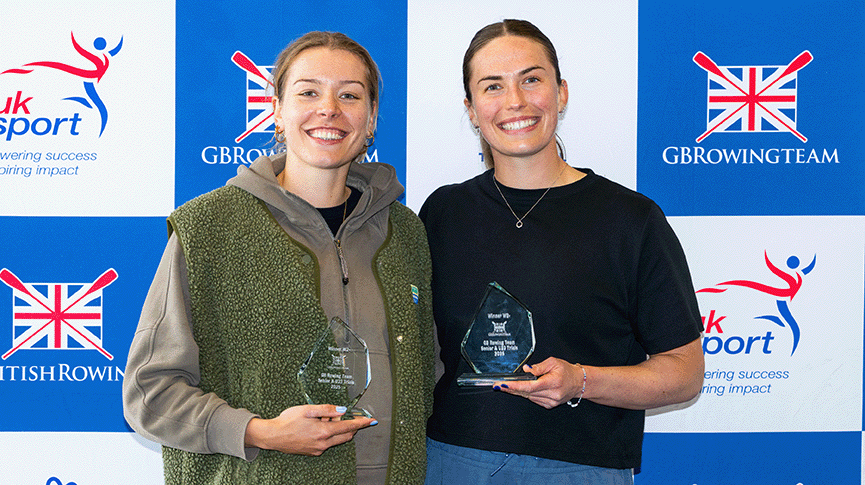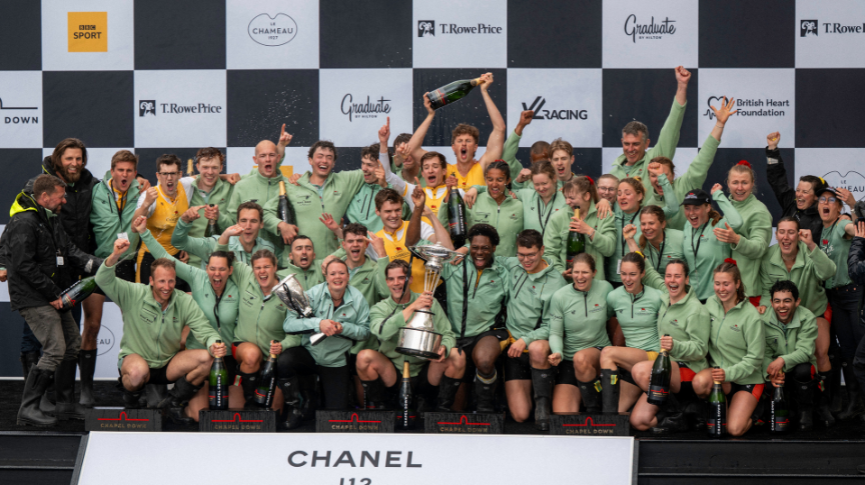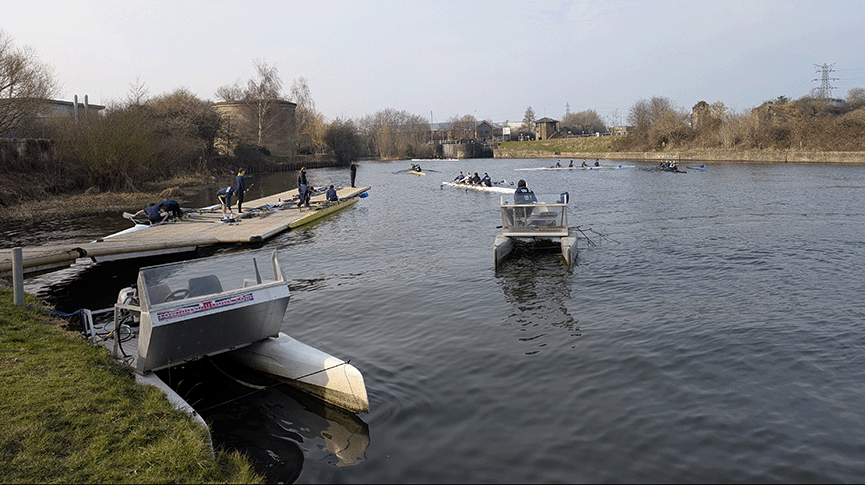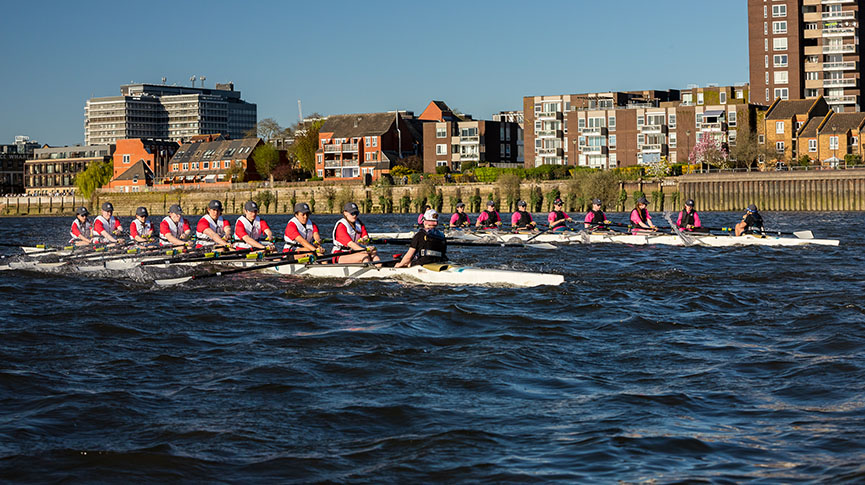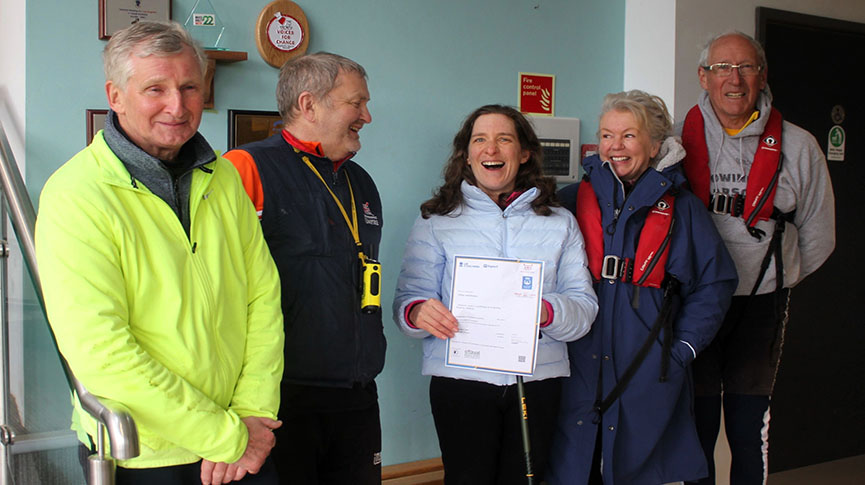RIP Penny Chuter OBE (1942-2024)
British Rowing was extremely sad to hear of the passing of former GB Rowing Team athlete and Director of International Rowing Penny Chuter OBE, at the age of 82
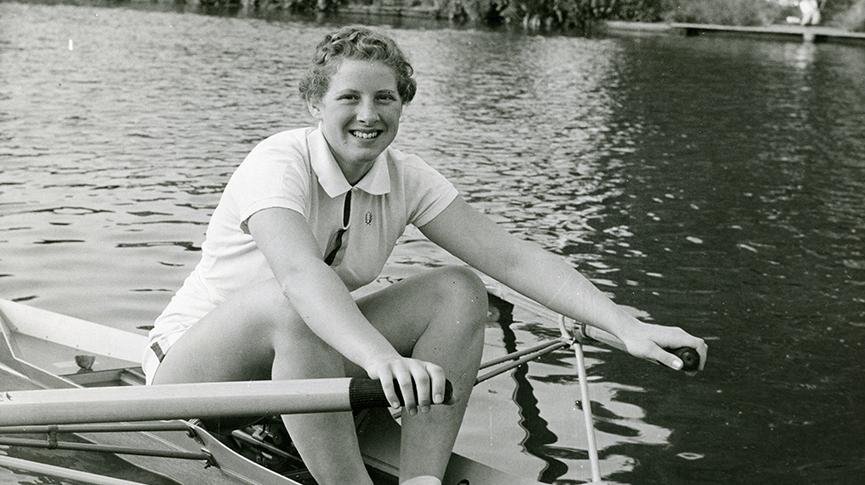
Penny is widely recognised as having been a pioneer in rowing – as an athlete, a coach and a leader in the sport. The impact of her contribution has been enormous, and much of it created the foundations on which decades of subsequent GB Rowing Team success has been built. Her commitment and dedication to rowing and to the athletes within it was characterised by incredible hard work as well as vision, which came at the expense of a personal life, and often to the detriment of her physical and mental wellbeing. Yet she made many, many friends within rowing, and there are countless others who also recognise that their achievements were thanks to her.
Her life in rowing started at an early age as her family home in Surrey was on the river Thames. By the time she was five, Penny would transport herself across the river to school in a little dinghy. She joined Laleham Skiff and Punting Club at Laleham when she was 12, and at 15 she won the first of what became 27 Punt Championship titles, and at 16 the first of 21 Skiff Championship titles. Her dominance eventually became so complete that she retired, unbeaten, for the good of both sports as others had been unwilling to race against her.
In 1959, her skiff and punting coach, Nevill Miroy, encouraged her to try sliding seat sculling, pointing out that as she had already beaten the British Women’s Sculling Champion in a skiff, if she could also beat her in a sliding seat boat, she could be selected for the 1960 Rome Olympic Games. Unfortunately, of course, his expertise in the technique of sculling wasn’t matched by his knowledge of women’s international rowing, there being no women’s rowing in the Olympic programme at that time.
Penny did, however, rapidly establish herself as Britain’s leading female single sculler and raced from 1960 to 1964 at the Women’s European Rowing Championships, the only international competition for women. In 1962 she won the silver medal, only the second women’s international rowing medal, and the first in single sculls. Incidents before and after the final in 1961, in which she finished in fourth place, led Penny to believe that one of the eventual medalists had been doping, which was banned but not tested for. Athletes whom she later coached remember her being particularly emphatic about the importance of ‘rowing clean’, another example of Penny being ahead of her time as the World Anti-Doping Agency was only established in 1999.
As an athlete, Penny had to take responsibility for her own development as she didn’t have a coach. She learned sports science and adopted innovative training methods from the Eastern bloc countries who were professionalising rowing training at a time when the UK still took great pride in ‘amateurism’ and many upheld the importance of ‘form’ over speed.
After retiring from international competition, Penny spent some years as a PE teacher before being appointed as National Coach for women’s rowing and coach education in 1973 – the first paid female rowing coach in the country. Starting from scratch, she created and led a new GB women’s national squad, which went on to compete in the first women’s events at the World Rowing Championships in 1974 and then at the Olympic Games in 1976.
In 1977 she switched to a role with the GB men’s team. This move was criticised by some women, who felt that she had abandoned them, but she actually had the women’s squad’s best interests in mind, feeling that it had enough of a struggle to get what it needed without its chief advocate also having to overcome hurdles because she was a woman. With a man in charge, she explained, at least he would only be fighting on one front not two. Penny went on to coach the GB Men’s pair to silver at the 1978 World Rowing Championships and the Men’s eight to another silver in 1981.
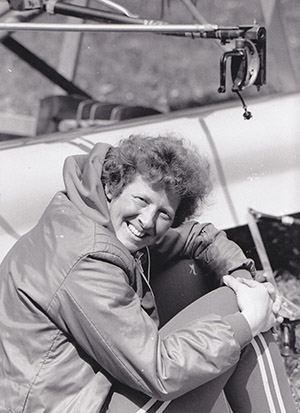 Photo: John Shore
Photo: John Shore
In 1982 she was appointed Director of Coaching for all teams, a role she held till 1986, when she became Director of International Rowing. In 1990 she stepped back from this to work in coach education before leaving the Amateur Rowing Association in 1994. She subsequently coached for Oxford University BC and worked for the English Sports Council.
As a coach, Penny’s innovations were transformative, in particular, the change from ‘compressed technique’ (where the seat was brought up to touch the heels, which was ruinous to athletes’ knees) to what she called ‘reach technique, and the standardisation to leading with the left hand in sculling so that crews could be more easily formed. She also introduced the use of video for coaching.
In terms of the organisation of international rowing, she was instrumental in changing the selection process from one where external Selection Boards passed judgement on individual crews, to one overseen by the Director of International Rowing. When National Lottery funding was first made available in 1997, the structures that she had put in place meant that GB rowing was in good shape to apply, and it became one of the first sports to gain Lottery funding.
Penny joined the FISA (now World Rowing) Women’s Commission in 1983 and then, in 1985, the Competitive Commission where she remained until 2006. She was instrumental in the women’s international racing distance being changed from 1,000m to 2,000 metres and the women’s quad being changed from coxed to coxless, both in 1985, and in for women and pushing for racing fairness at FISA regattas. A lack of fairness had almost certainly impacted her own racing results.
She received an OBE for services to rowing in 1989, after leading the GB Rowing Team through the 1988 Olympic Games. In 2006 she was awarded the Amateur Rowing Association (now British Rowing) Medal of Honour and the FISA (now World Rowing) Distinguished Service to International Rowing medal.
After she retired, Penny moved to Cornwall, where she greatly enjoyed getting involved with two further forms of rowing – gig racing with Flushing and Mylor Pilot Gig Club, and most recently the new discipline of coastal sculling. In 2022, at the age of 80, she thoroughly enjoyed her last final appearance as an international athlete, coxing the Carrick RC women’s quad that she had been coaching at the World Rowing Coastal Championships in Saundersfoot, Wales.
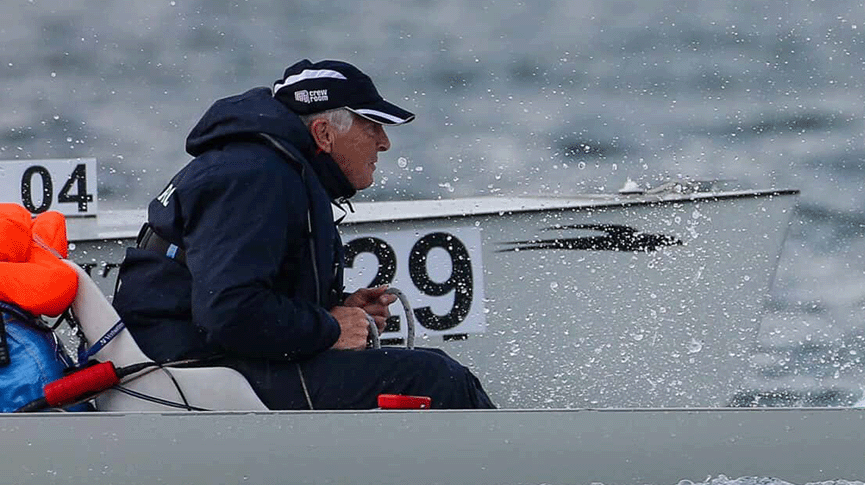 Penny coxing at the 2022 World Rowing Coastal Championships. Photo: World Rowing.
Penny coxing at the 2022 World Rowing Coastal Championships. Photo: World Rowing.


